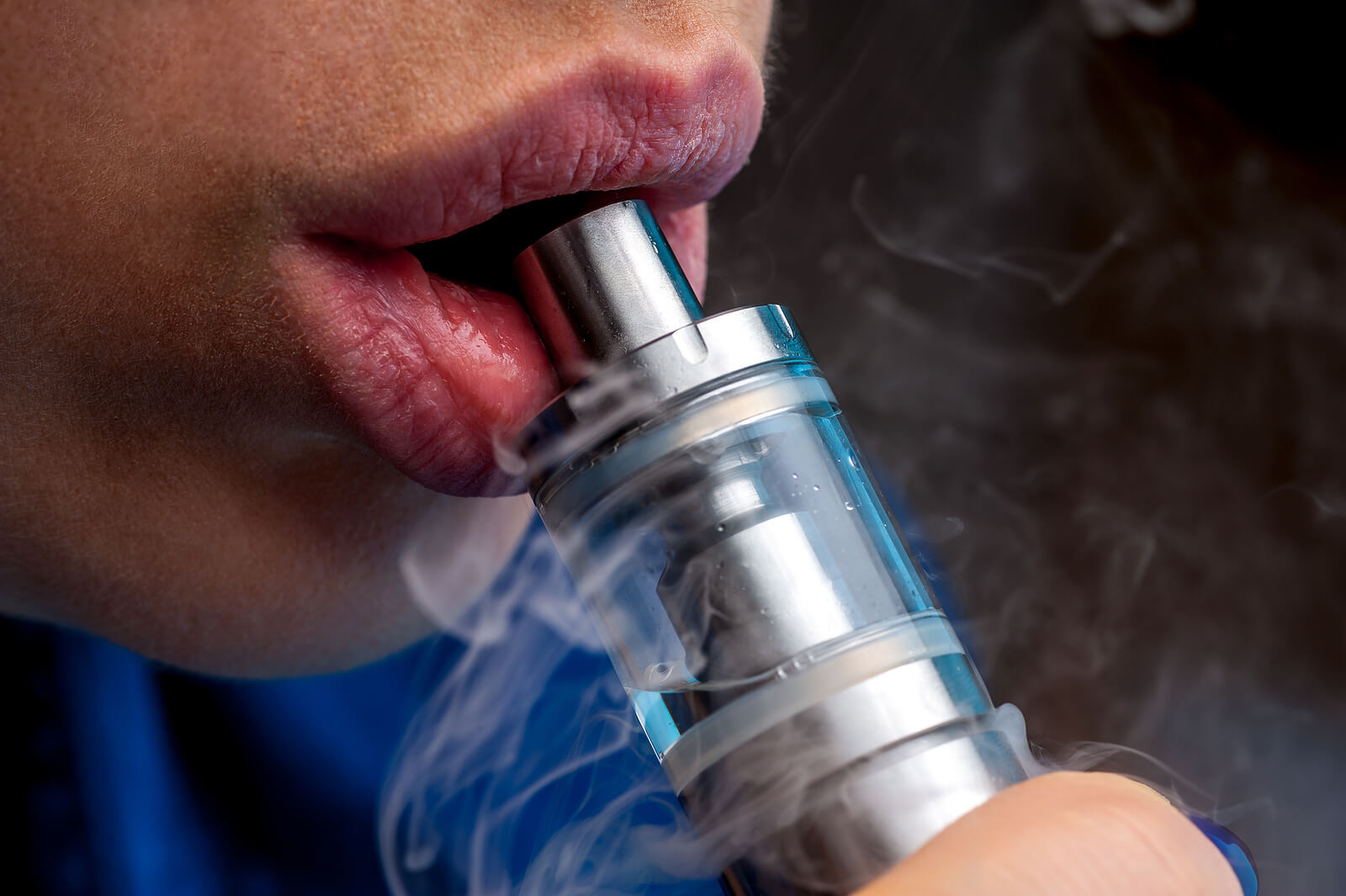In recent years, vaping has emerged as a concerning trend among teenagers. It has become increasingly popular with teens, leaving many parents worried about their kids. Parents often wonder why, despite the many potential health consequences, teen vaping in NJ has become so normalized.
I’ve written before about the dynamics of being a teenager. The teenage narrative is a quest for identity and acceptance. Coping mechanisms have always been interwoven throughout this narrative. Today’s teenagers are grappling with anxiety, body image concerns, and the myriad of pressures of adolescence. Vaping has become deeply entrenched in teenage culture, especially as a coping mechanism for these struggles.
Insights From a Teen Counselor in Scotch Plains, NJ
Whether it’s the relentless pursuit of social acceptance or the silent battles within their own minds, many teens describe the allure of vaping as a purported “easy fix”. It is marketed as providing solace and a sense of escape.

This blog aims to shed light on and explore the connection between mental health and vaping. I hope it fosters a better understanding between teens and their parents. But to do this, parents need compassion, empathy, and understanding for their teen who may be struggling. The truth is that beneath the vapor clouds lie profound struggles for connection, acceptance, and relief from the stress of adolescence.
Why Should Parents Be Concerned About Vaping?
Vaping among teens has garnered significant attention and concern. And this is all for a good reason. Vaping can impact not only physical health but also mental health.
While teens may be using vape products to alleviate their anxiety, nicotine can actually lead to heightened levels of stress and anxiety. Regular use of nicotine can disrupt brain chemistry which contributes to mood instability. The neurobiological effects of nicotine can inhibit emotional regulation, potentially exacerbating symptoms of depression over time.
Adolescence is a critical period of time for brain development. Nicotine can impair cognitive functioning both in the short and long term. Vaping has been associated with impaired memory, attention, and executive functioning in teenagers. These impairments can be widespread and impact overall mental clarity. Nicotine has the potential to impact academic performance, which unaddressed can have potential consequences for their futures.
Nicotine and other substances found in vapes have the potential to disrupt sleep patterns, leading to insomnia or poor sleep quality. The importance of sleep, especially for teens, cannot be overstated. Sleep disturbances can exacerbate mental health issues, thus creating a vicious cycle.
So With All These Risks, Why Do Teenagers Vape?
Peer Pressure and The Desire To Fit In
Many teens report vaping being rampant within their schools and social groups. But this is not a new issue. After all, Brownsville Station and later Mötley Crüe sang about nicotine usage in school in the 70s and 80s respectively with “Smokin’ in the Boys’ Room”. We as human beings have a natural desire to connect with others and fit in. If “everyone” is vaping, it makes sense that a teenager would want to vape as a means to engage in prosocial behavior and facilitate peer acceptance. In some cases, teenagers may vape simply out of boredom or as a way to pass the time when hanging out with friends. Vaping may be perceived as a social activity or a way to bond with peers, particularly in settings where it is common or normalized.
Stress and Anxiety Relief
Some teenagers turn to vaping as a coping mechanism to alleviate stress, anxiety, or other emotional challenges they may face. Vapes usually contain nicotine and are often flavored, which can provide a temporary escape or distraction from life’s pressures. Teens with preexisting mental health concerns may be particularly vulnerable to the use of vaping as a self-medication. The problem is that nicotine is inherently addictive. The more someone vapes, the more likely they are to need more to get the same “buzz”. Thus, the less effective this coping mechanism becomes overall.
Appetite Suppression
Body image and self-esteem have a significant impact on a teen’s mood. Nicotine is a proven appetite suppressant. Supermodels in the 90s would chain-smoke cigarettes to reduce their appetite and increase metabolism. Now, vapes are flavored, which can, in theory, contribute to the sensation of eating. Someone who vapes will eat less but feel as full due to ingesting flavored nicotine. The NIH published a study in 2020 that suggested that candy-flavored vapes in particular were uniquely associated with using vapes for appetite control amongst adolescents.
Curiosity and Experimentation
Adolescence is a time filled with a natural inclination to be curious and want to experiment as a result. During this stage of development, teens may be more likely to engage in risk-taking behavior. Teenagers seek novel experiences and vaping may be seen as an intriguing activity to try. Curiosity about the flavors and sensations that may be associated with vaping can drive experimentation among teenagers.
Marketing and Accessibility

How Can Parents Deal With Teen Vaping?
Making a discovery that your teenager is vaping can be distressing to any parent. It is important to keep in mind that how you respond has the potential to build connection or disconnection.
Open and Non-Judgmental Dialogue
Initiate a conversation in a non confrontational manner. As hard as that might be to do, parents must keep their own emotions in check. Create a space where your teen feels safe and comfortable expressing their feelings, thoughts and experiences without fear of judgment. Use active listening to hear your teen out. Validate their feelings and try your best not to criticize or lecture them. If you can get your teen to open up to you about the reasoning behind their vaping, you can provide them with the appropriate support.
Education vs. Lecturing
Provide factual information about the consequences and risks of vaping. Your initial reaction may be to use scare tactics or provide your teen with an ultimatum. However, these approaches are generally unhelpful and push teens further away by hindering constructive conversation. Look at resources together and discuss potential solutions and alternatives.
Address Underlying Issues
What’s their motivation to vape? Take the time to identify and address these root causes in a sensitive manner. As aforementioned, vaping can be symptomatic of stress, peer pressure or other mental health concerns. Offering support and resources can help teens cope in a healthier manner, either through therapy, stress management, nutritionists/dieticians or other extracurriculars that promote well-being,
Set Boundaries
Don’t be afraid to establish clear boundaries and rules regarding vaping both in and out of the household. Focus on emphasizing the importance of maintaining a healthy and smoke-free environment. While punishment alone may not be effective, focusing on collaborative problem-solving and mutual respect allows for a balance between enforcing rules and fostering trust.
Lead By Example
Modeling positive behavior and coping mechanisms are important for parents. Teenagers absorb and shape their own experiences by the people around them. If you smoke or vape yourself, consider quitting or seeking support to stop. Demonstrating resilience, healthy coping strategies, and being open about navigating the challenges of quitting sets a powerful example for your teen to emulate.
Seek Professional Support
If your teen is experiencing mental health challenges, don’t hesitate to seek professional support. Consult with healthcare providers, counselors, or addiction specialists. Encourage your teen to be an active participant in their treatment. Provide ongoing reassurance that they are making a healthy choice.
Supporting teenagers who vape requires a multifaceted approach. Both their physical and mental well-being needs to be addressed. By fostering open communication, understanding underlying issues, and seeking appropriate support, parents can empower their teenagers to make healthier choices and navigate challenges effectively.
Begin Therapy For Teens In Branchburg, NJ, Scotch Plains, NJ, and Beyond

- Reach out for a free 20-minute consultation.
- Meet with a caring therapist from our team
- Start helping your teen practice healthier choices!
Other Services Offered With Brave Minds Psychological Services
Therapy for teens is not the only service we offer at Brave Minds Psychological Services. Our team is happy to offer support with a variety of mental health concerns including support for children, adults, and groups. For teens, we are happy to offer support via equestrian anxiety, food allergies, sexual abuse, social phobias, and selective mutism. Our team is happy to also offer support via trauma therapy, couples counseling, parent counseling, grief counseling, and online therapy across New Jersey. Feel free to learn more about therapy modalities our team uses like EMDR and CBT, or visit our blog to learn more today!


